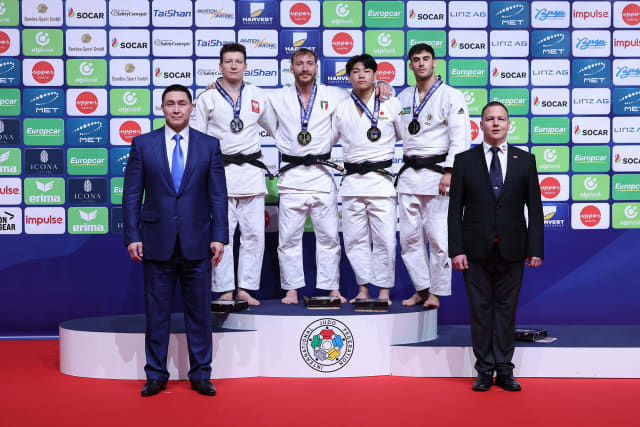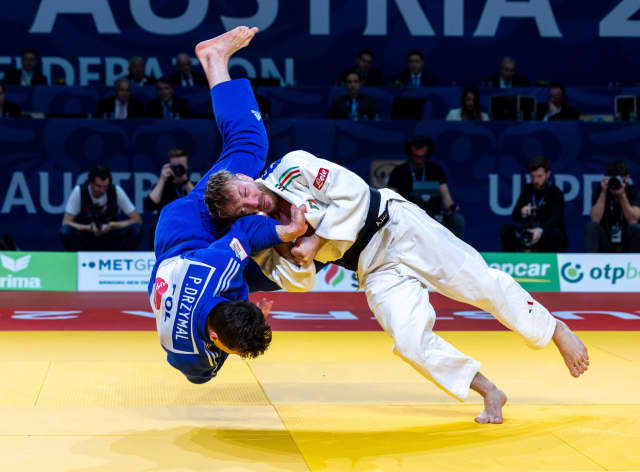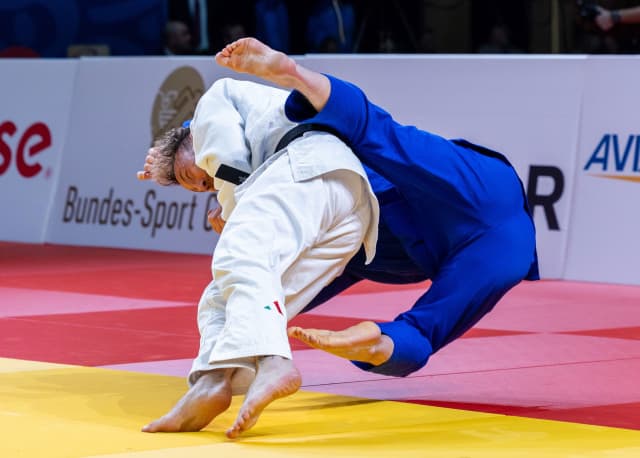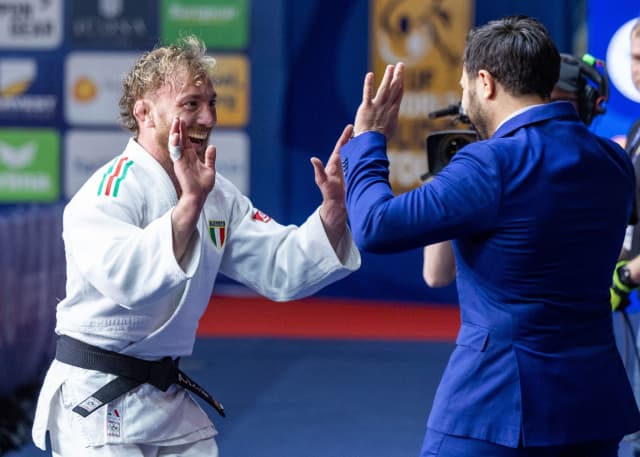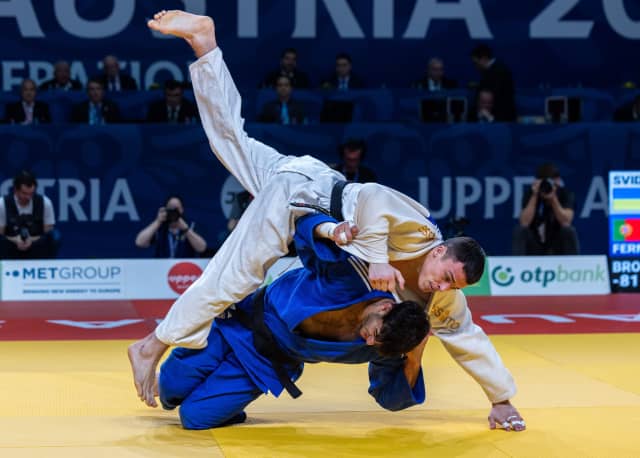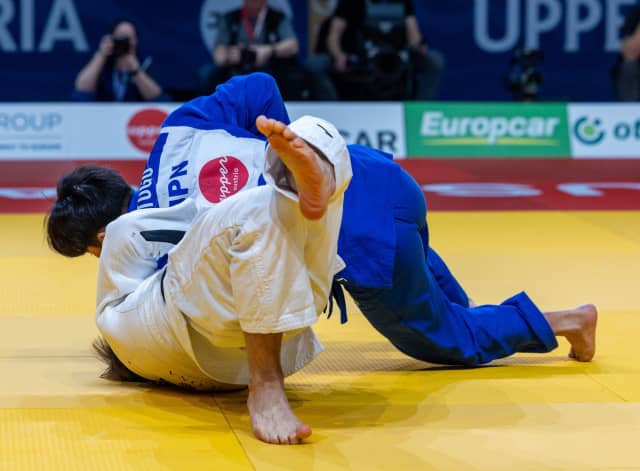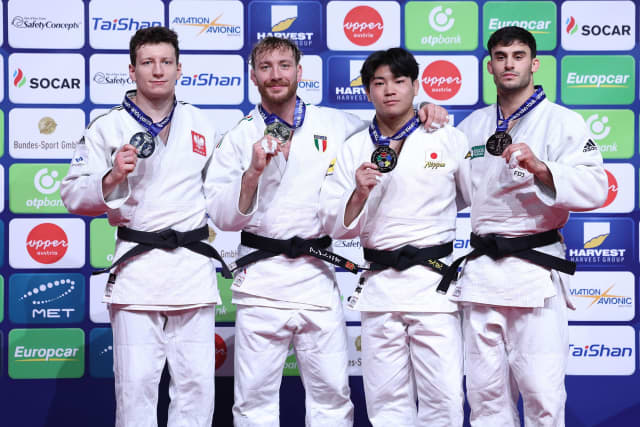Instead, it was young Bernd Fasching who gave the home crowd at the Tips Arena plenty to cheer for. The world number 112 threw the Pan-American trio of Perez (CHI), Gandia (PUR) and top seed Schimidt (BRA), before losing out to the in-form Joao Fernando (POR) in their quarter-final. Undeterred, the 20-year-old Fasching threw Duyck (BEL) with a thunderous tani-otoshi in the repechage to book his place in the bronze medal contest.
It was not a good day for the seeded athletes, with only one out of eight making it to the quarter-final stage. The man who did was Antonio Esposito (ITA), on blistering form. The double grand prix medallist threw four opponents in a row with ippon scores in just 3 minutes and 15 seconds of contest time to charge into the final. He took out Moorhead (GBR) with tomoe-nage and all of Trigub (IRL), Duyck (BEL) and Fernando with low, two-sleeve seoi-nage attacks.
This is what a WJT Gold medal means! 🇮🇹🥇
— Judo (@Judo) March 9, 2024
Follow all the action on https://t.co/5YYXyE0nko 💻#JudoUpperAustria #Judo #Linz #Austria #Sport #Olympics #OlympicQualifiers #RoadToParis2024 #WJT #Icona pic.twitter.com/8lwB3oDQBX
On the other side of the draw, world number 50 Pawel Drzymal (POL) produced similarly sensational judo; he too defeated all of his preliminary opponents by ippon. He used a combination of seoi-otoshi and sumi-gaeshi to beat Del Orbe Cotorreal (DOM) in round 1, before throwing 7-time grand prix medallist Ungvari (HUN) with o-soto-gari in round 2. Against Kopecky (CZE) in round 3, he once again launched his opponent through the air, this time with o-soto-gaeshi to earn the decisive score.
Drzymal’s quarter final opponent was Alfonso Urquiza Solana, against whom he scored two more waza-aris, with o-soto-gari and later tomoe-nage. His semi-final against World Tour newcomer Joji Togo (JPN) was unfortunately cut short after just 36 seconds, as the Japanese athlete was disqualified for head-diving, sending the Polish man through to face Esposito in what was set to be an explosive final.
That final did not disappoint. It was an open and entertaining bout with Esposito coming close to scoring twice with low seoi-nage attacks in the opening minutes; Drzymal miraculously avoided landing on his side in both cases. The Polish fighter soon picked up two penalties and Esposito kept his attack rate high. As the contest looked to be heading into golden score, he dropped underneath his opponent once more using seoi-nage, running across the mat and eventually landing him flat on his back just as the time ran out. It was a clean ippon and a first grand prix gold for Esposito. Arguably these were career-best performances from both finalists.
Fasching would face Togo in the first bronze medal contest. Unfortunately for the Austrian and his home crowd, Togo quickly dropped in for a seoi-otoshi which scored ippon in just 13 seconds. Fasching can still take heart from a great performance, while Togo will be delighted with a grand prix medal at his first attempt; both fighters look to have great careers ahead of them.
The second bronze medal contest saw Svidrak take on Fernando for a place on the podium. Fernando had a 2-1 lead in the head-to-head between the two going into the contest and he extended this lead with two waza-ari scores, first with his favoured seoi-otoshi and then with an unusual kata-guruma, to take home his second grand prix bronze medal and some vital Olympic ranking points.
